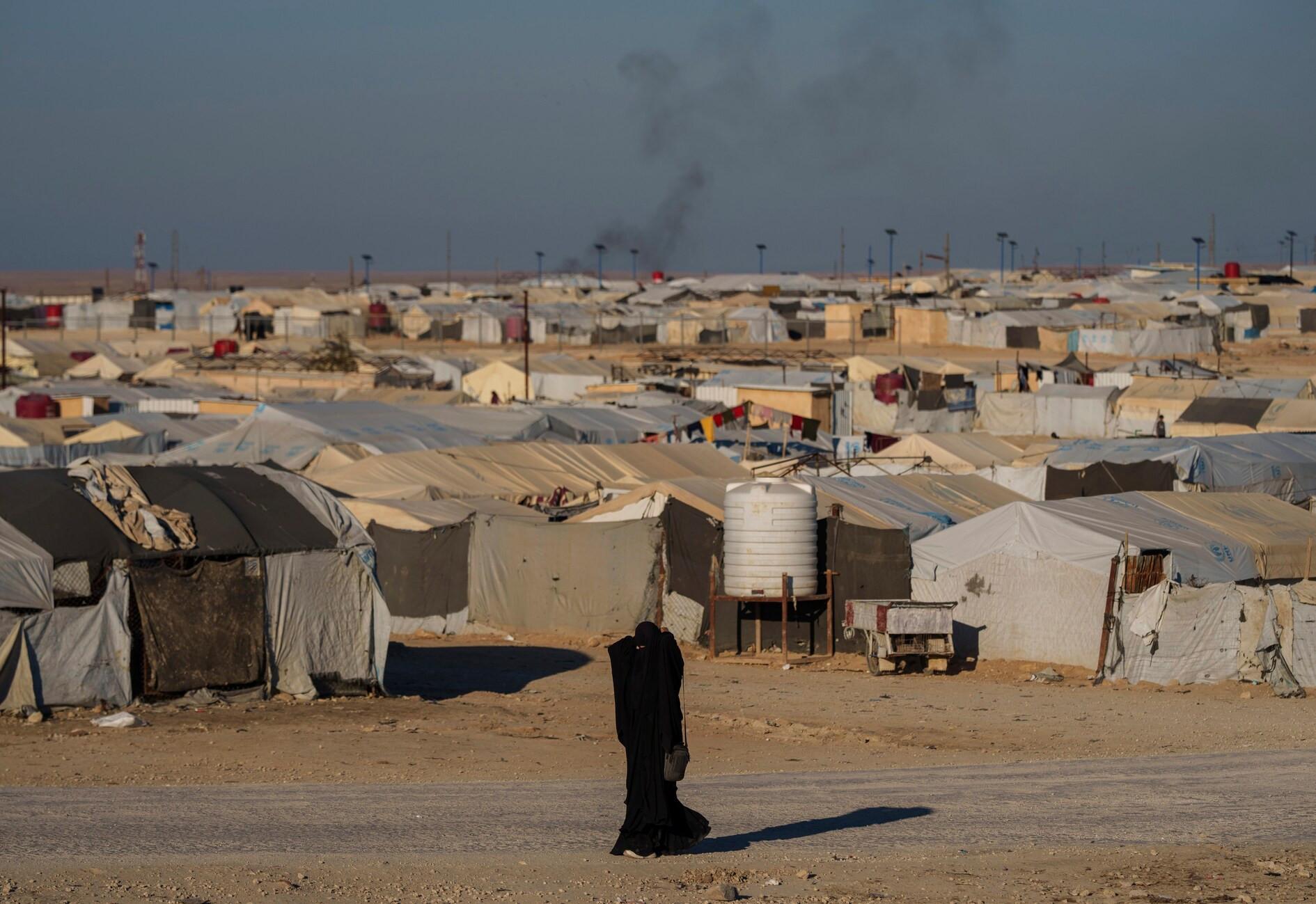
FILE - A woman walks in the al-Hol camp in northeastern Syria's Hasakeh province, where tens of thousands of mostly women and children linked to the Islamic State group have been living for years, Thursday, Jan. 30, 2025.
Damascus and YPG-led Syrian Democratic Forces (SDF) have reached an agreement to evacuate Syrian citizens from a sprawling camp in the desert that houses tens of thousands of people with alleged ties to ISIL terrorist group, SDF has announced.
An agreement was reached on a “joint mechanism” for returning the families from al-Hol camp after a meeting among local authorities, representatives of the central government in Damascus and a delegation from the U.S.-led international coalition fighting ISIL, said Sheikhmous Ahmed, an official from SDF that controls the country’s northeast.
Ahmed denied reports that administration of the camp will be handed over to Damascus in the near future, saying “there was no discussion in this regard with the visiting delegation or with the Damascus government.”
Under a deal signed in March between Syrian President Ahmad al-Sharaa and SDF head Mazloum Abdi to be merged into the new government armed forces. All border crossings with Iraq and Türkiye and airports and oil fields in the northeast are to come under the central government’s control.
A delegation from the Syrian government visited al-Hol camp on May 25, according to local media. The delegation consisted of 10 people and was the first visit to the camp by the new government.
A source who spoke to Syria TV reported that SDF was preparing to evacuate a group of Syrians living in al-Hol camp in the countryside of Hasakah to their hometowns on May 27 or 28.
The source noted that nearly 100 Syrian families —totaling around 300 individuals—completed all the necessary exit procedures and logistical preparations for their transfer.
Human rights groups for years have cited poor living conditions and pervasive violence in the camp, which houses about 37,000 people, mostly wives and children of ISIL terrorists as well as the group’s. They also include Iraqis as well as nationals of Western countries who traveled to join ISIL.
The U.S. military has been pushing for years for countries that have citizens at al-Hol and the smaller, separate Roj Camp to repatriate them. Iraq has taken back increasing numbers of citizens in recent years, but many other countries have remained reluctant.